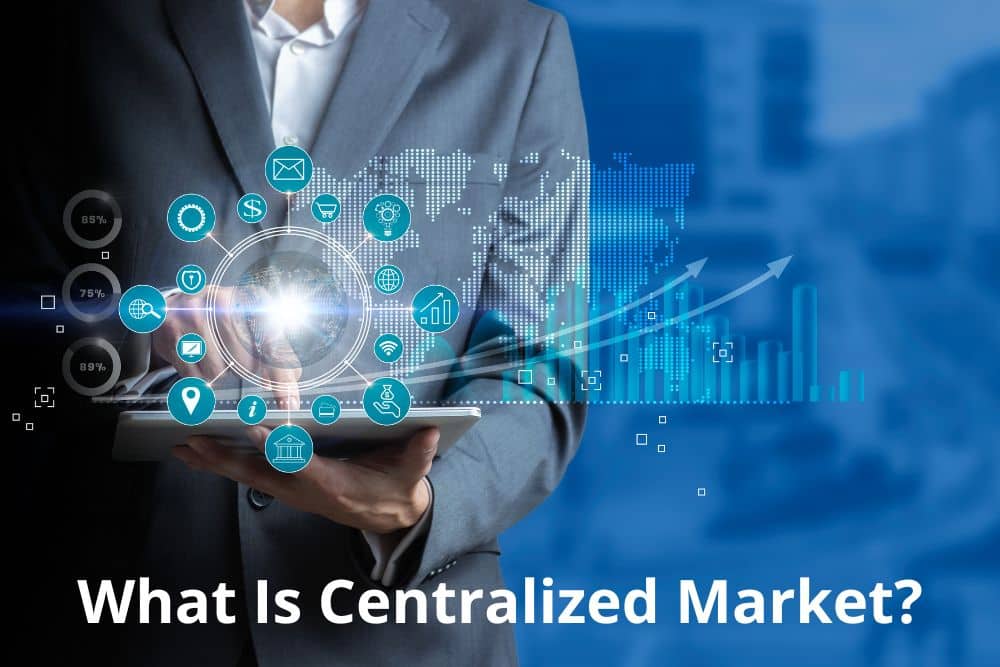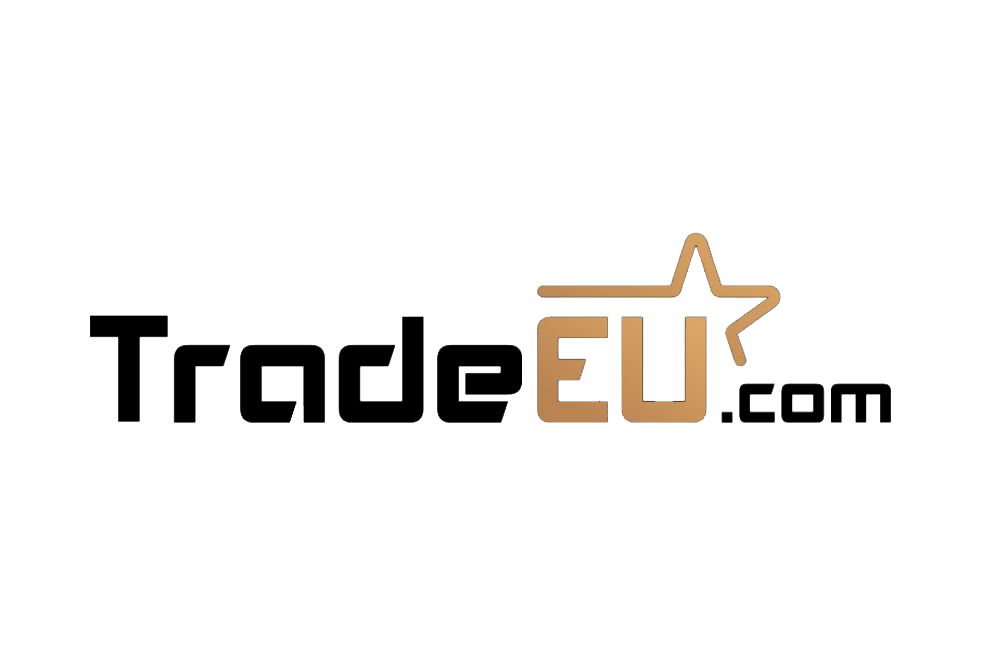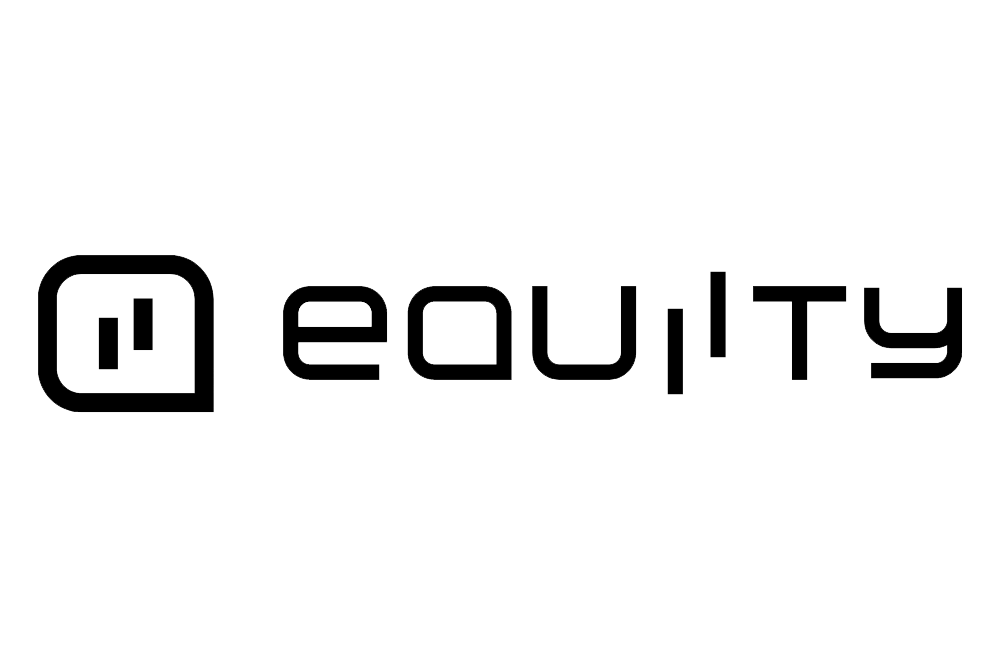The centralized market has been a prominent part of the financial market for a long time. The nature and the importance of this regulated market are what draw every investor. However, the emergence of a decentralized market has impacted the centralized market to a great extent. Still, it is considered the safest venue for buying and selling assets.
Through this write-up, we will explore the importance and the features of the centralized market to get a better understanding of the topic. Let’s start with the basics – What Is Centralized Market?
Centralized Market Meaning: The Basics
A centralized Market is a financial market system with only one central exchange (no other competing markets) serving as the primary destination for all orders. A centralized market work to keep trades fair, speed up the buying/selling process and do more business.
In a centralized market, security prices are the only prices quoted by the exchange for investors to trade particular assets. The world’s most prominent centralised markets include stock and commodities.
Centralized Market Meaning – Key Points
To better understand the concept – What Is Centralized Market? Here are some key points to read:
- A centralized market is a financial market structure in which all trade orders are routed through a single central body with no competing markets.
- These markets are a good fit for shareholders due to the absence of a competitive price model, which makes price movements even more predictable.
- The primary functions of the Centralized markets are to ensure fair trade and to speed up the buying and selling process.
- Examples of centralized markets include NSE, TSX, CME, and LSE.
- The emergence of the Decentralized market has overshadowed the role of the Centralized markets with the introduction of blockchain technology.
How Does Centralized Market Function?
The Centralised market work in such a way that all trade orders are tracked and routed through a central body without any intervention from other competing markets. The exchange’s quoted price is the only price available to traders looking to trade specific assets.
Here are some important elements of a Centralized Market:
Transparent Pricing Model
Securities in centralized markets are priced centrally as there is only one central body. Therefore, all traders will have the same price quotes for the same assets. Traders can’t trade the same instrument in different markets at varied prices. As a result, the asset’s prices become more transparent.
Clearinghouse
The centralised market provides a clearing house, which represents an entity acting as a middleman between the buyer and the seller of the security. Therefore, the operations in the centralized market become extremely smooth and efficient.
The clearinghouse ensures that market activities are carried out properly to ensure buyers will get their purchased assets and sellers get a fair price for their assets.
With the involvement of a clearinghouse, the counterparty risk goes below the line as buyers and sellers need not worry about who is buying and who is selling.
No Competing Markets
As all financial instruments, assets and securities are routed to a single central authority, the role of competing markets vanishes here.
In simple words, the possibility of an investor buying or selling the same asset in another competing market is low in a centralized market.
Centralized Market: Top Features To Consider
There are various reasons why a Centralised market is a need of the hour. Here’s a list of top features of the market:
- All participants in the centralized market model are aware of the price, have access to all quotes and trades, and can incorporate this information into their strategy.
- Clearing House is also one of the features of a centralized market. This serves as the neutral party that mediates and completes transactions between the buyer and seller. The primary duty of the clearinghouse is to ensure that both parties uphold the integrity of the exchange or transaction.
- The presence of a clearing house, which stands between buyers and sellers and ensures the integrity of the transactions because both buyers and sellers effectively transact with the exchange and not with one another, thereby lowering counterparty risk, is another essential element of a centralized market.
- The centralized organisation that is entirely in charge of the market’s exchanges has fixed the authority of the market and manages it.
- The centralized body has complete control over everything that occurs in the market. Because of this, making decisions is quite simple. This characteristic ultimately contributes to the market’s efficient and consistent operation.
- In a centralized market structure, the fixed entity controls how the economy is managed. The lower layers are unable to change as a result. There isn’t much room for change when it comes to the market. This is so because that particular entity has sole authority to make choices.
- The market may quote the price in a straightforward manner because no other market competes with the centralized market for particular financial instruments. This implies that those buyers and investors who are prepared to invest in a specific financial or physical product can view the price.
Importance Of Centralized Market
A centralized market has great significance in unpredicted market conditions. Additionally, the importance of this market doesn’t limit to just exchange, but it extends to market participants.
Here are some of the importance of a Centralized market:
Helps Speed Up The Buying & Selling Process
The centralisation of the market help speed up the buying and selling process. The efficiency of the trades also increases as a result of the seamless trading conditions and top-class market regulations.
Keep Trades Fair
As a centralised market doesn’t allow any other market intervention, the quoted prices are the final prices for the buyer and the seller. Traders can’t sell or buy the same assets at different prices in other competing markets.
Highly Regulated
The regulation of the centralized market holds significant importance. The market is highly regulated and has a single central authority that oversees the whole market.
Advent Of Decentralized Market: What Is A Decentralized Market?
The emergence of a Decentralized market has overshadowed the role of a centralized market in recent years. However, some investors are still unaware of decentralized markets & often ask one common question – What Is Decentralized Market?
A decentralized market is a market structure in which buyers and sellers exchange securities without any intervention from the central body. In short, it is the contrast of a centralised market.
The emergence of decentralized markets has resulted in many trading and investing platforms offering buyers and sellers to engage directly without the role of any central or regulated body.
The most common example of a Decentralized market in recent times is P2P trading (Peer-to-Peer, where buyers and sellers can transact directly.
For example, peer-to-peer trading programs represent an example of decentralized markets where buyers and sellers deal directly with one another and set different prices for an asset.
Here are the top features of the Decentralized market:
- It offers several markets to trade the same asset.
- Allow buyers and sellers to engage directly without any intervention from the central authority.
- Prices of the same asset can differ at the same time.
- Many online brokers and trading sites started offering decentralized trading.
Examples Of Centralized Market And Decentralized Market
Centralized Market
The biggest example of a centralized market will remain the stock exchange. All the orders are routed to the exchange and matched with offsetting orders. Here are some of the prominent examples of Centralized markets:
- New York Stock Exchange (NYSE)
- Toronto Stock Exchange (TSE)
- Chicago Mercantile Exchange (CME)
- Tokyo Commodity Exchange (TCE)
- Athens Stock Exchange (ASE)
- London Stock Exchange (LSE)
- Australian Securities Exchange (ASE)
Decentralized Market
The foreign exchange market (popular as Forex, FX, or currency market) is a global decentralized or over-the-counter (OTC) market for trading currencies. Other examples of decentralized markets include
- Crypto Markets
- Real Estate
Centralized Market vs Decentralized Market
There are core differences between centralized vs decentralized markets in terms of their practical operation. Let’s explore each:
| Differences | Centralized Market | Decentralized Market |
| Value Determination | Market strength and economic prospects | Supply and demand, Speculation and Investment |
| Security and Control | Susceptible to hacking as they have a single point of data collection. | Highly secure as you would need to access each involved computer at the same time. |
| Global Marketplace | Centralized systems are local | Decentralized market offers global assets, available from anywhere in the world. |
| Liquidity | High | Low |
| Market Future | Market updation is the biggest down point. | The decentralized market keeps on expanding |
Conclusion
The regulated structure of the centralized market is the ultimate reason behind its widespread popularity. Additionally, it is the safer market as only a single body has the authority to make decisions and other changes.
Price transparency is another significant factor in the market. The prices remain the same for buyers and sellers. Overall, centralized markets still have the upper hand over decentralized markets in terms of regulation and safety.
FAQs
What Is The Difference Between Centralized And Decentralized Market?
The key difference between the centralized and decentralized markets is that the former is quite a safer place for traders as it s highly regulated. On the other hand, the Decentralized market lacks centralisation and regulations.
Fragmented Market Vs Concentrated Market: Which Is Better?
It highly depends on your trading goals. A fragmented market signals low entry barriers but is more difficult to reach a high market share.
At the same time, a Concentrated market signals high entry barriers, but once you manage to overcome them, you can get a higher share.
Centralized Vs Decentralized Market: Which Should I Choose?
If regulation is your top priority, then choosing a centralized market is a better decision as there is always a central authority overseeing and ensuring fair trading. At the same time, the decentralized market lacks this feature.
Is The Interbank Market Centralized?
No, the interbank market is decentralized and unregulated as there is no specific location or exchange where these trades take place.
Is Stock Market Centralized?
Yes, the Stock market is centralized and highly regulated. There is always a central authority called the stock exchange that regulates and oversees the market’s activities.
Are The Buying And Selling Of Stocks Centralized Activities? Why Or Why Not?
Yes, buying and selling stocks is a centralised activity as it is routed through a central body called the stock exchange. This process’s main purpose is to ensure that the asset’s prices remain the same.
What Is A Central Market?
A central Market is a financial market system with only one central exchange (no other competing markets) serving as the primary destination for all orders.
What Is Meant By Centralisation? Define Centralisation.
Centralization is the process in which an organisation’s activities, particularly regarding planning and decision-making, building strategy and policies, become specified within a particular geographical location group.
What Is A Decentralized Stock Exchange?
The stock exchange is a centralized market. However, plans for a new blockchain-based framework to create decentralized stock exchange are underway.
Is Forex A Centralized Market?
No, Forex is a decentralized market as trades in the FX market take place in many different forms, 24 hours a day, through different channels all over the globe.
What Is A Central Market And Why Does It Matter?
A Central Market is a financial market system with only one central exchange (no other competing markets) serving as the primary destination for all orders. The market hold importance for stock and commodities traders.
What Is An Example Of A Centralized Exchange?
The New York Stock Exchnage (NYSE) is the most prominent example of a centralized exchange.
Are Banks Centralized Or Decentralized?
Banks are centralized and also act as the regulatory authority of a country’s monetary policy. It is the sole provider and printer of circulating currencies.
What Exchanges Are Centralized?
Here are some of the prominent examples of Centralized markets:
- New York Stock Exchange (NYSE)
- Toronto Stock Exchange (TSE)
- Chicago Mercantile Exchange (CME)
- Tokyo Commodity Exchange (TCE)
- Athens Stock Exchange (ASE)
- London Stock Exchange (LSE)
- Australian Securities Exchange (ASE)
Is Bitcoin Centralised Or Decentralised?
Bitcoin is a decentralized market example, as there is no central authority that oversees and regulates the crypto market. There is no specific location or exchange where these trades take place.
Who Controls The Crypto Market?
The simple answer to who controls nobody and everybody at the same time. There is no authority that regulates or oversees the market’s activities.
Who Invented Blockchain?
The first blockchain network was invented under the pseudonym of Satoshi Nakamoto. It was invented with the creation of the first bitcoin in 2009.
Who Started Bitcoin?
Bitcoin was created and launched in 2009 under the pseudonym of Satoshi Nakamoto. The group was active in the development of bitcoin up until December 2010.
Are Futures Markets Centralized?
A futures markets are a central marketplace, whether physical or electronic, in which futures contracts and options on futures contracts are traded.
What Is A Centralised Finance?
Centralised finance is a type of financial process in which users can earn interest and loans on their digital assets through a centralized institution.
What Is A Centralized Market In Finance?
A centralized Market is a financial market system with only one central exchange (no other competing markets) serving as the primary destination for all orders. A centralized market work to keep trades fair, speed up the buying/selling process and do more business.
Is There A Centralized Market For Gold?
The three most prominent centralized markets for gold include the London OTC market, the US futures market and the Shanghai Gold Exchange (SGE).
Is The New York Stock Exchange A Centralized Market?
Yes, New York Stock Exchnage (NYSE) is a centralized marketplace for stock traders across the US.
Is Cryptocurrency Decentralized?
Yes, Cryptocurrency is a decentralized virtual currency, based on blockchain technology and secured by cryptography.
Why Is Bitcoin Not Decentralized?
The reason why bitcoin is not a decentralized cryptocurrency is that its mining pool system allows single groups to own significant portions of the computing power on the network.


